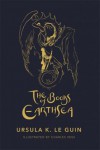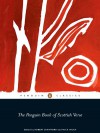Arbie's Unoriginally Titled Book Blog
It's a blog! Mainly of book reviews.
Currently reading
The Complete Orsinia, Ursula Le Guin

UKL said she wanted to write about Europe but felt that as an American, she wouldn't be taken seriously if she did so - so she invented a central European country (Orsinia) in the hope that would allow her to get away with it. She set her first novel, Malafrena, there and talked about love and freedom and revolution, but it didn't work; the novel was re-hashed several times before publication and she had already established herself as an SF novelist by that time. Superficially, a historical novel about trying to escape foreign control and gain self-determination doesn't seem to fit with the space adventures and magical worlds of the familiar later UKL - but I've already revealed the actual close connections; made up places, similar thematic concerns. Despite all the re-working it never really attains the greatness UKL was capable of and remains a quirky early book that only completists will probably want to read.
The following Orsinian Tales, which range across the entire history of the country from tenuous early Christian conversion to the fall of the Iron Curtain in 1989, however are on average greatly superior and I recommend them. Unfortunately to get the most from them, Malafrena is a pre-requisite, slight slog that it is. The stories are set not only at key points in European history but also just wherever they might need to be to tell the story UKL had in mind. The end of Summer in the countryside, 1935, doesn't particularly redound through history, for instance, but the story captures a mood exceptionally and delightfully.
The book ends in 1989, the most optimistic year in Europe since the start of WWI. The Iron Curtain fell and a great, menacing Russian shadow over Europe was removed. Shocking and scary to note, in 2018, the extent to which that shadow is regrowing and spreading over America, too. Ukraine, and Georgia strategically nibbled at. America that defined itself as standing against the Soviets, now a client state of a resurgent Imperialist Russia.
 5
5










